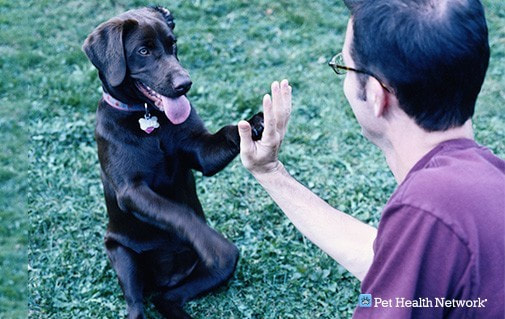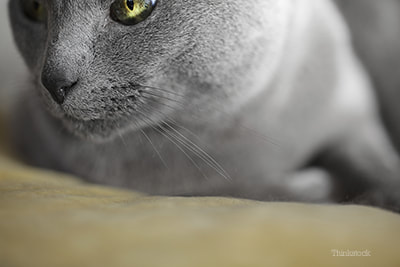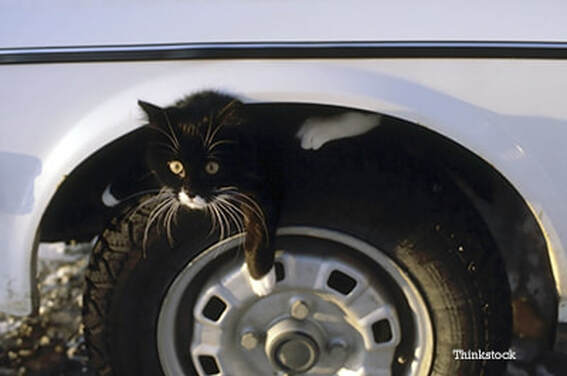|
Posts by: Mychelle Blake, MSW, CDBC, Lifestyle Contributor and Pet Behavior Expert Dog BehaviorWith the holidays coming up, your home is likely to be experiencing more activity and guests. Depending on your dog’s personality and habits, this can be a difficult time for both your dog and your family. Planning ahead and doing some simple training with your dog can make this a more pleasant experience for everyone. Training before the holidays If you haven’t taught your dog any basic manners or behaviors, now’s the time to start! Even if you’re short on time, you can easily work in short training sessions a few times a day and see results quickly. Work the training into your daily life as much as you can, such as training “stays” while you are cooking in the kitchen, or asking the dog for “sits” and “downs” while you’re on the couch watching TV. The more you ask for behaviors as part of your routine, the more your dog will develop using them as a regular habit. Some of the behaviors that can be most useful during the holidays are:
Management during the holidays: |
| Keep your dog comfortable-- If you know your dog doesn’t care for guests, have a crate ready for him in a quiet spot, such as bedroom with a closed door. Alternatively, keep him in a place where he can feel comfortable and not interact with guests, such as a bedroom, laundry room or other area that is closed off with a door or baby gate. Never allow people to interact with your dog if the dog isn’t comfortable, as this can increase the anxiety he is feeling. |
| Provide distractions-- Have a variety of items ready for your dog, to occupy his time, while you visit with your guests. This can include food stuffed toys or puzzles, bones, chews, chew sticks and toys. Always give your dog an item such as this in a safe place and supervise any interaction if children will be visiting. |
| Exercise, exercise, exercise-- You cannot exercise your dog enough during these busy times. As the saying goes, “A good dog is a tired dog.” The more physical exercise your dog gets, the less rambunctious when people come to visit, and there’s a good chance after greeting guests he’ll be more than happy to crawl up on his bed or crate and take a nap. |
If you find you need help with training the behaviors we’ve discussed, you can find professionals near you who can help at www.iaabc.com, www.petprofessionalguild.com and www.apdt.com.
If you have any questions or concerns, you should always visit or call your veterinarian -- they are your best resource to ensure the health and well-being of your pets.
Reviewed by:
Dr. Celeste Clements, DVM, DACVIM
Reviewed on:
Thursday, December 10, 2020
If you have any questions or concerns, you should always visit or call your veterinarian -- they are your best resource to ensure the health and well-being of your pets.
Reviewed by:
Dr. Celeste Clements, DVM, DACVIM
Reviewed on:
Thursday, December 10, 2020
3 Comments
| Posts by: Dr. Mike Paul, DVM Some heart diseases are “peracute” or sudden onset. There may be no warning signs or pre-existing symptoms and if your cat has not had a thorough physical examination, sudden onset heart disease can be quite a shock. While we have all heard of sudden death from heart disease in people, it is not commonly known that animals can have sudden heart problems that can also lead to death. |
What causes sudden heart problems in cats?
The most common causes of sudden death in cats are heart disease and associated conditions.
Feline cardiomyopathy or “heart muscle disease” and feline heartworm disease are the most common causes of sudden death in outwardly healthy cats. Both of these conditions frequently give no warning. Death can occur as a result of emboli or blood clots as well as sudden and severe rhythm abnormalities.
I have personally known and treated cats that died unexpectedly from heart disease. One patient was placed in her carrier at home acting completely normal only to pass away on the 15-minute trip to my office for a routine procedure. Sudden and unexpected death of a pet is heartbreaking and some people may blame themselves. “Was there something I could have done?”
The most common causes of sudden death in cats are heart disease and associated conditions.
Feline cardiomyopathy or “heart muscle disease” and feline heartworm disease are the most common causes of sudden death in outwardly healthy cats. Both of these conditions frequently give no warning. Death can occur as a result of emboli or blood clots as well as sudden and severe rhythm abnormalities.
I have personally known and treated cats that died unexpectedly from heart disease. One patient was placed in her carrier at home acting completely normal only to pass away on the 15-minute trip to my office for a routine procedure. Sudden and unexpected death of a pet is heartbreaking and some people may blame themselves. “Was there something I could have done?”
How can I protect my cat from sudden heart failure?
Unfortunately, little is known about feline heart disease and sudden death. The only steps we can take as owners is to have our cat regularly examined — even then some cats may appear completely normal. In some breeds genetic testing may help develop a preventive plan, but remember there is no assurance that prevention will work.
The one contributing condition we can largely prevent is heartworm infection. Because as few as two or three worms in the pulmonary vessels can lead to sudden death, be sure that your cats are on year-round monthly heartworm preventive. I have had normal patients who developed sudden heart failure associated with undiagnosed heartworm infection. (Unfortunately heartworm testing is much more challenging in cats than in dogs and relatively few cats are on heartworm preventive.)
Heartworm infection symptoms can range from coughing to sudden death
Losing a pet is never easy and it is particularly difficult if unexpected. The important thing is that we do what we can. Ask your veterinarian what is within your control and take reassurance in the knowledge that you have done your best.
Some questions to ask your veterinarian:
Q: My cat died suddenly of cardiac disease. What could I have done to prevent this?
Q: My cat was recently tested for heartworms and was negative but she has developed a severe cough. Could it be from heartworms?
If you have any questions or concerns, you should always visit or call your veterinarian -- they are your best resource to ensure the health and well-being of your pets.
Reviewed by:
Sarah Sweet, DVM
Reviewed on:
Wednesday, September 23, 2020
Unfortunately, little is known about feline heart disease and sudden death. The only steps we can take as owners is to have our cat regularly examined — even then some cats may appear completely normal. In some breeds genetic testing may help develop a preventive plan, but remember there is no assurance that prevention will work.
The one contributing condition we can largely prevent is heartworm infection. Because as few as two or three worms in the pulmonary vessels can lead to sudden death, be sure that your cats are on year-round monthly heartworm preventive. I have had normal patients who developed sudden heart failure associated with undiagnosed heartworm infection. (Unfortunately heartworm testing is much more challenging in cats than in dogs and relatively few cats are on heartworm preventive.)
Heartworm infection symptoms can range from coughing to sudden death
Losing a pet is never easy and it is particularly difficult if unexpected. The important thing is that we do what we can. Ask your veterinarian what is within your control and take reassurance in the knowledge that you have done your best.
Some questions to ask your veterinarian:
Q: My cat died suddenly of cardiac disease. What could I have done to prevent this?
Q: My cat was recently tested for heartworms and was negative but she has developed a severe cough. Could it be from heartworms?
If you have any questions or concerns, you should always visit or call your veterinarian -- they are your best resource to ensure the health and well-being of your pets.
Reviewed by:
Sarah Sweet, DVM
Reviewed on:
Wednesday, September 23, 2020
| Posts by: Jason Carr, Former Pet Health Network Editor-in-Chief During the cold winter months cats will often seek out any warm space they can find. One particularly irresistible lure seems to be the cozy confines of a warm car engine. Unfortunately, cats that seek shelter under the hoods of cars can then be injured or killed when that car is started. Help keep your own and your neighborhood cats safe this winter by following the tips below and talking with your veterinarian about cold-weather care for cats: |
Keep your cat inside
The best advice regarding your own cat is simply to keep him indoors during the winter. You’ll protect him not only from engine dangers but also from becoming lost, stolen, or injured. Jane Harrell, former Editor-in-Chief of Pet Health Network, is no stranger to the devastation that can be caused simply by turning a key: “I’ve been in the pet industry for thirteen years, and every year there is a story that comes up about a cat that’s gotten trapped in a car [engine]. I’m hoping we can share the message about this and help save a lot of cats out there.” To keep your own cat safe, Jane suggests simply keeping him inside during the cold months. “If you allow your cats outside they are more likely to seek a place of warmth, and underneath or inside a car’s engine are two very warm spots,” Jane says.
Check on your cat before taking any trips
With your cat safe inside, it should be easy for you to check on her before leaving on any trips. Maddie, a seven month old Tabby cat, somehow survived her family’s 100 mile long trip in 2009. Maddie was unknowingly stowed away during the drive that lasted for ninety minutes. Her family almost learned the hard way how important it is to check on your cat before any trips are taken. Other cats aren’t as lucky as Maddie was. In 2012, a cat named Pebbles barely survived his 15 mile trip. Pebbles needed a couple of jaw surgeries and lost the end of his tail.
Give any cats that might be hiding under your car a warning
Even with your cat safely inside, neighborhood and feral cats could still be hiding under your car. Jane suggests you, “give a little pound on your hood or slam the car door before you start [your car]. It’s always a good idea to check underneath your car to see if cats are hiding.” You can also honk your horn before starting your car to help wake up any sleeping cats under or in your engine.
Give cats time to escape your car
After you’ve made plenty of noise, be sure that any cats have had time to run away. Cats can tuck themselves into the tightest of spaces and may need a little extra time to wiggle out. Fortunately, by following these precautions -- and any cold-weather cat care advice your veterinarian has to offer -- you can help keep cats safe during the cold weather months.
If you have any questions or concerns, you should always visit or call your veterinarian – they are your best resource to ensure the health and well-being of your pets.
Reviewed by:
Celeste Clements, DVM, DACVIM
Reviewed on:
Friday, September 11, 2020
The best advice regarding your own cat is simply to keep him indoors during the winter. You’ll protect him not only from engine dangers but also from becoming lost, stolen, or injured. Jane Harrell, former Editor-in-Chief of Pet Health Network, is no stranger to the devastation that can be caused simply by turning a key: “I’ve been in the pet industry for thirteen years, and every year there is a story that comes up about a cat that’s gotten trapped in a car [engine]. I’m hoping we can share the message about this and help save a lot of cats out there.” To keep your own cat safe, Jane suggests simply keeping him inside during the cold months. “If you allow your cats outside they are more likely to seek a place of warmth, and underneath or inside a car’s engine are two very warm spots,” Jane says.
Check on your cat before taking any trips
With your cat safe inside, it should be easy for you to check on her before leaving on any trips. Maddie, a seven month old Tabby cat, somehow survived her family’s 100 mile long trip in 2009. Maddie was unknowingly stowed away during the drive that lasted for ninety minutes. Her family almost learned the hard way how important it is to check on your cat before any trips are taken. Other cats aren’t as lucky as Maddie was. In 2012, a cat named Pebbles barely survived his 15 mile trip. Pebbles needed a couple of jaw surgeries and lost the end of his tail.
Give any cats that might be hiding under your car a warning
Even with your cat safely inside, neighborhood and feral cats could still be hiding under your car. Jane suggests you, “give a little pound on your hood or slam the car door before you start [your car]. It’s always a good idea to check underneath your car to see if cats are hiding.” You can also honk your horn before starting your car to help wake up any sleeping cats under or in your engine.
Give cats time to escape your car
After you’ve made plenty of noise, be sure that any cats have had time to run away. Cats can tuck themselves into the tightest of spaces and may need a little extra time to wiggle out. Fortunately, by following these precautions -- and any cold-weather cat care advice your veterinarian has to offer -- you can help keep cats safe during the cold weather months.
If you have any questions or concerns, you should always visit or call your veterinarian – they are your best resource to ensure the health and well-being of your pets.
Reviewed by:
Celeste Clements, DVM, DACVIM
Reviewed on:
Friday, September 11, 2020
Archives
November 2023
March 2022
February 2022
January 2022
December 2021
November 2021
October 2021
September 2021
August 2021
June 2021
May 2021
April 2021
March 2021
February 2021
January 2021
December 2020
November 2020
October 2020
September 2020
August 2020
April 2020
March 2020
February 2020
January 2020
December 2019










 RSS Feed
RSS Feed
